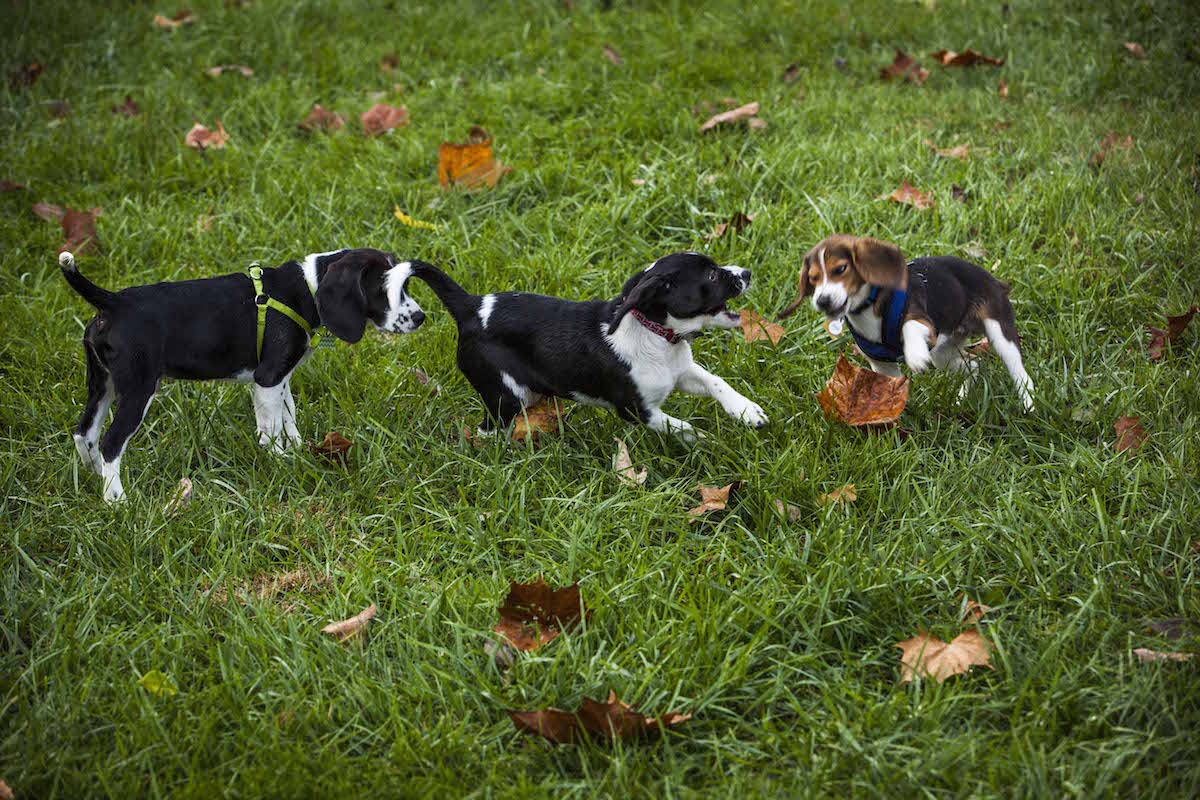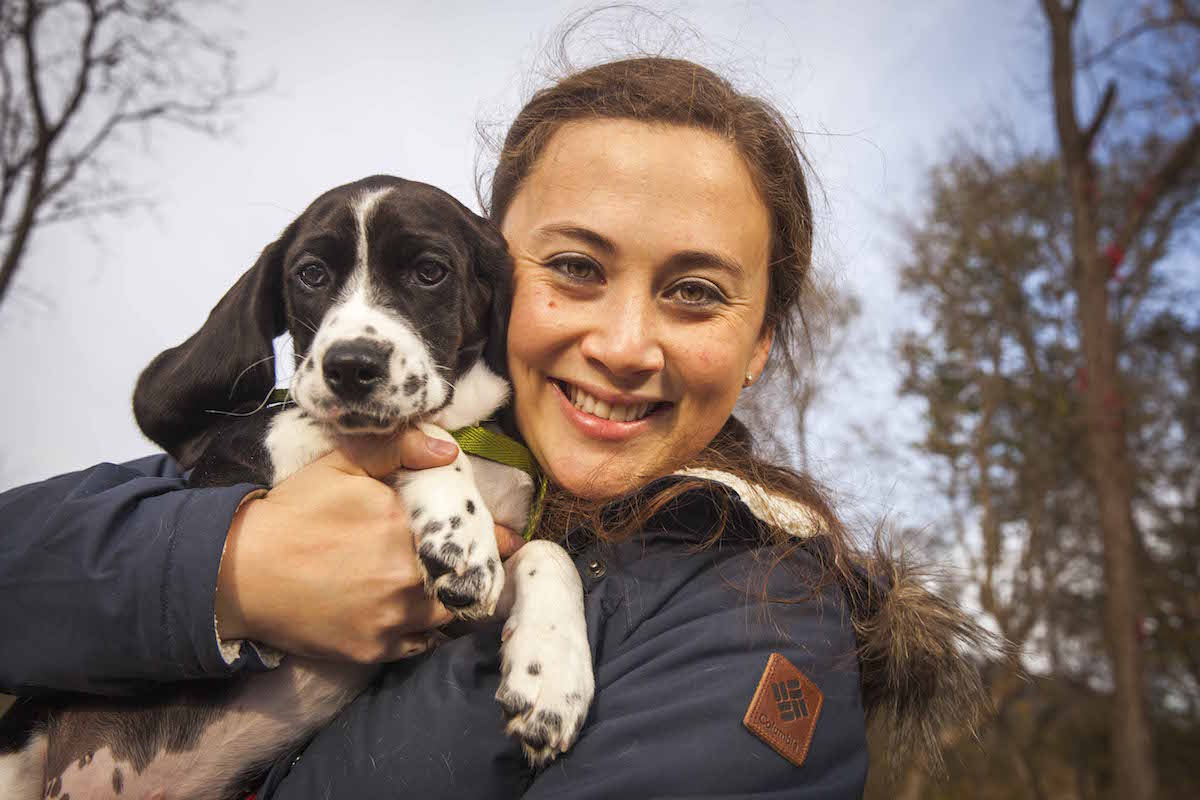World's first IVF puppies born in the US – in pictures
The breakthrough could help the understanding of inherited diseases in dogs and humans
A free daily email with the biggest news stories of the day – and the best features from TheWeek.com
You are now subscribed
Your newsletter sign-up was successful






American scientists have produced the world's first 'test-tube' puppies after years of attempts.
The seven beagle and cross-bred beagle-spaniel puppies were born to a surrogate mother, and despite being from the same litter they have three sets of parents.
Frozen embryos were placed in a female dog in a process similar to the one used in human fertility clinics, say researchers from Cornell University.
The Week
Escape your echo chamber. Get the facts behind the news, plus analysis from multiple perspectives.

Sign up for The Week's Free Newsletters
From our morning news briefing to a weekly Good News Newsletter, get the best of The Week delivered directly to your inbox.
From our morning news briefing to a weekly Good News Newsletter, get the best of The Week delivered directly to your inbox.
"We have seven normal happy healthy puppies," said lead researcher Dr Alex Travis in a report in the scientific journal Plos One.
"Since the mid-1970s, people have been trying to do this in a dog and have been unsuccessful," he added.
"Now we can use this technique to conserve the genetics of endangered species."
Previous attempts at IVF in dogs have failed due to the complexity of the canine reproductive system. However, the scientists from Cornell were able to achieve the breakthrough after closely studying previous failures.
A free daily email with the biggest news stories of the day – and the best features from TheWeek.com
The puppies were born in the summer but their existence was kept secret until the findings were formally announced to the scientific world this week.
They have reportedly been named Ivy, Cannon, Beaker, Buddy, Nelly, Red and Green, and all but one has gone to a new home.
"The procedure could transform attempts to save endangered dog species, and potentially help prevent the genetic disorders that afflict so many breeds," says The Guardian.
Prof David Argyle from the University of Edinburgh told the BBC that new techniques used in the process could help the understanding of inherited diseases in dogs and humans.
"Importantly, it is becoming apparent that dogs and humans share many common biology, diseases and syndromes, and it is likely that these new techniques could have significant benefit for the study of human diseases as well as canine diseases," he added.
-
 6 exquisite homes with vast acreage
6 exquisite homes with vast acreageFeature Featuring an off-the-grid contemporary home in New Mexico and lakefront farmhouse in Massachusetts
-
 Film reviews: ‘Wuthering Heights,’ ‘Good Luck, Have Fun, Don’t Die,’ and ‘Sirat’
Film reviews: ‘Wuthering Heights,’ ‘Good Luck, Have Fun, Don’t Die,’ and ‘Sirat’Feature An inconvenient love torments a would-be couple, a gonzo time traveler seeks to save humanity from AI, and a father’s desperate search goes deeply sideways
-
 Political cartoons for February 16
Political cartoons for February 16Cartoons Monday’s political cartoons include President's Day, a valentine from the Epstein files, and more
-
 Epstein files topple law CEO, roil UK government
Epstein files topple law CEO, roil UK governmentSpeed Read Peter Mandelson, Britain’s former ambassador to the US, is caught up in the scandal
-
 Iran and US prepare to meet after skirmishes
Iran and US prepare to meet after skirmishesSpeed Read The incident comes amid heightened tensions in the Middle East
-
 Israel retrieves final hostage’s body from Gaza
Israel retrieves final hostage’s body from GazaSpeed Read The 24-year-old police officer was killed during the initial Hamas attack
-
 China’s Xi targets top general in growing purge
China’s Xi targets top general in growing purgeSpeed Read Zhang Youxia is being investigated over ‘grave violations’ of the law
-
 Panama and Canada are negotiating over a crucial copper mine
Panama and Canada are negotiating over a crucial copper mineIn the Spotlight Panama is set to make a final decision on the mine this summer
-
 Why Greenland’s natural resources are nearly impossible to mine
Why Greenland’s natural resources are nearly impossible to mineThe Explainer The country’s natural landscape makes the task extremely difficult
-
 Iran cuts internet as protests escalate
Iran cuts internet as protests escalateSpeed Reada Government buildings across the country have been set on fire
-
 US nabs ‘shadow’ tanker claimed by Russia
US nabs ‘shadow’ tanker claimed by RussiaSpeed Read The ship was one of two vessels seized by the US military